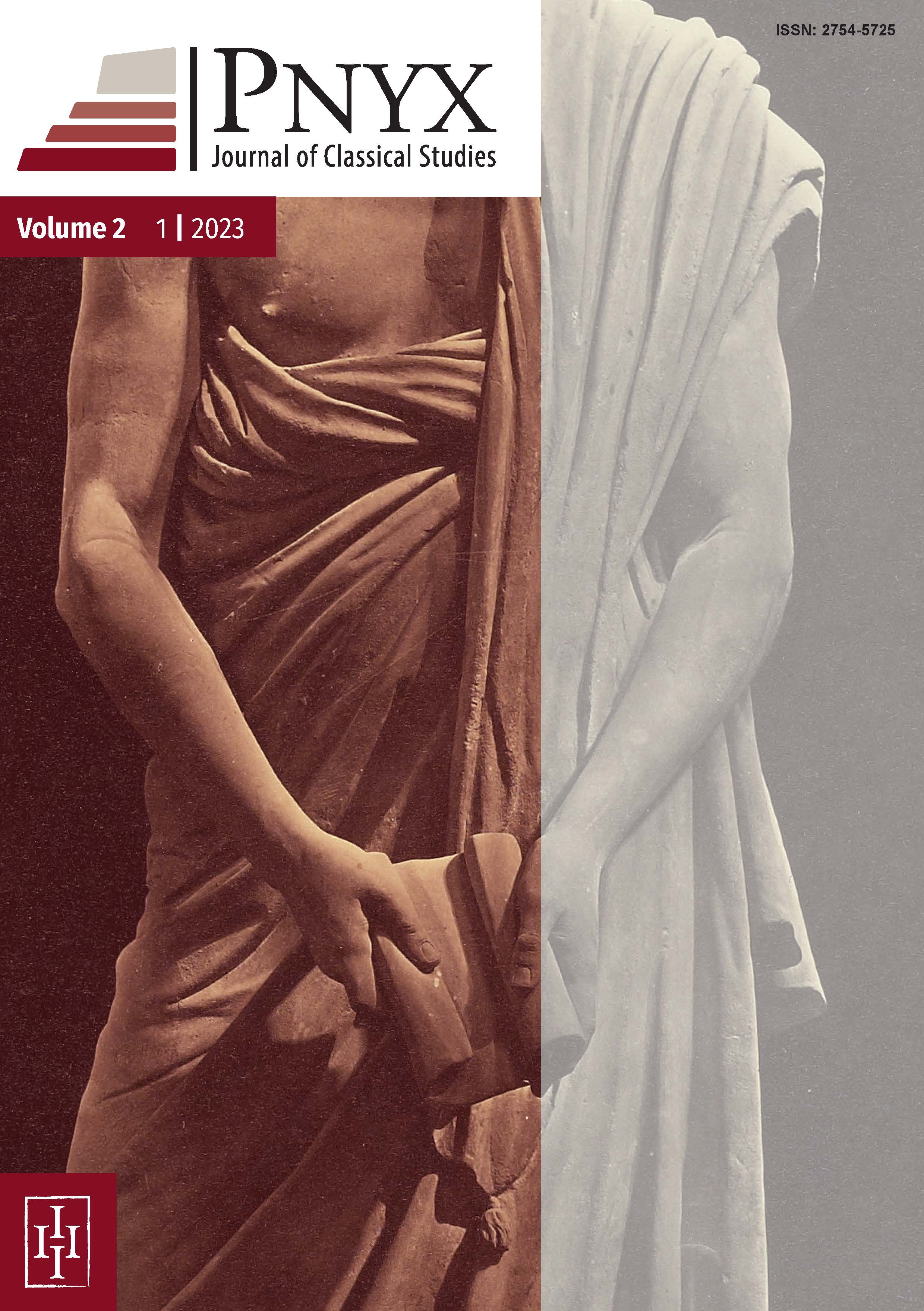Krinagoras and Imperial Glory An Interplay Between Irony, Mockery, and Flattery
Abstract
This paper examines two epigrams of the Mytilenean poet Krinagoras (AP 9.562 and 9.224), traditionally interpreted as court flattery examples. Krinagoras was a poet close to the Augustan court, and many of his epigrams praised members of the imperial house. However, a closer examination of these epigrams reveals a discreet dose of irony towards the glory of Augustus, a seemingly strange choice on the part of a court poet of the Augustan circle. It seems that Krinagoras, who travelled from his native island Mytilene to the westernmost part of the Roman Empire in Tarragona as a member of the embassy to meet Augustus, used irony as a stylistic instrument to insinuate his discontent for the hardships he had suffered. The paper contributes to a growing literature that examines the ways literary works functioned as instruments of flattering the ruler but also concealed resentment or mockery, even against the Roman emperor. Krinagoras' irony is merely one instance among many where subtle mockery and satire of the imperial family were exercised in the early Augustan period.
##plugins.themes.ekt-hometheme.article.details##
- Come citare
-
Mitropoulos, G. (2023). Krinagoras and Imperial Glory: An Interplay Between Irony, Mockery, and Flattery. Pnyx: Journal of Classical Studies, 2(1), 1–19. https://doi.org/10.55760/pnyx.2023.33658
- Sezione
- Articles

TQuesto lavoro è fornito con la licenza Creative Commons Attribuzione 4.0 Internazionale.
Isegoria believes in the dissemination of research without restrictions. That is why we publish Open Access, digital works under the Creative Commons Attribution licence (CC BY 4.0), following the Berlin Declaration on Open Access to Knowledge in the Sciences and Humanities and the latest developments according to the Plan S (Coalition-S).
This licence allows anyone, including the author, to share, copy, distribute, transmit, adapt, and make commercial use of the work without needing additional permission, provided appropriate attribution is made to the original author or source. Thus, all works published by Isegoria exceed all funder or institutional requirements for research to be published Open Access. Naturally, in case there is a need for a different CC BY licence (i.e. BY-ND/BY-NC-ND) due to third-party permissions, we are happy to discuss and review on a case-by-case basis.
The published Open Access books are discoverable via the Directory of Open Access Books (DOAB) and can be catalogued without restrictions to institutional repositories, academic research networks, personal websites, and be circulated freely on the web.






